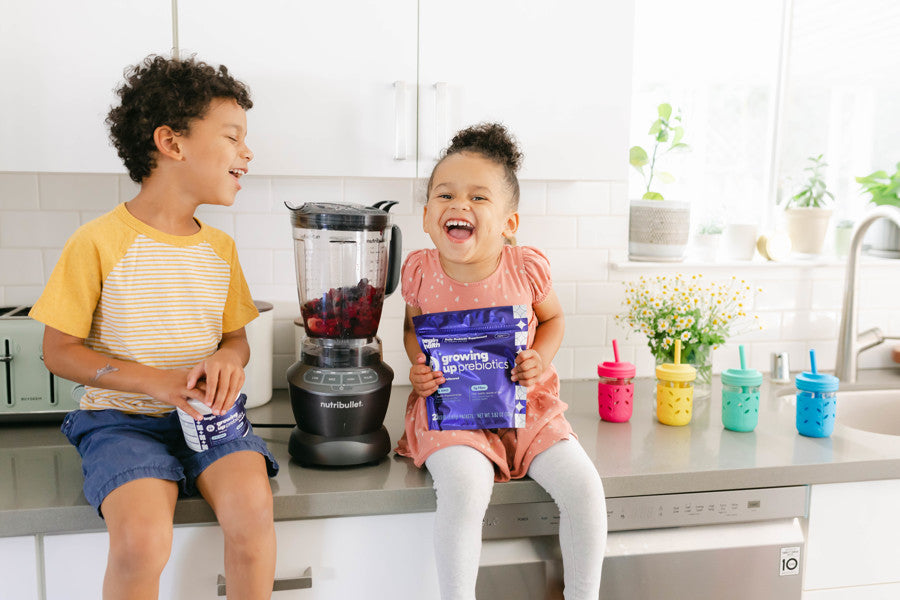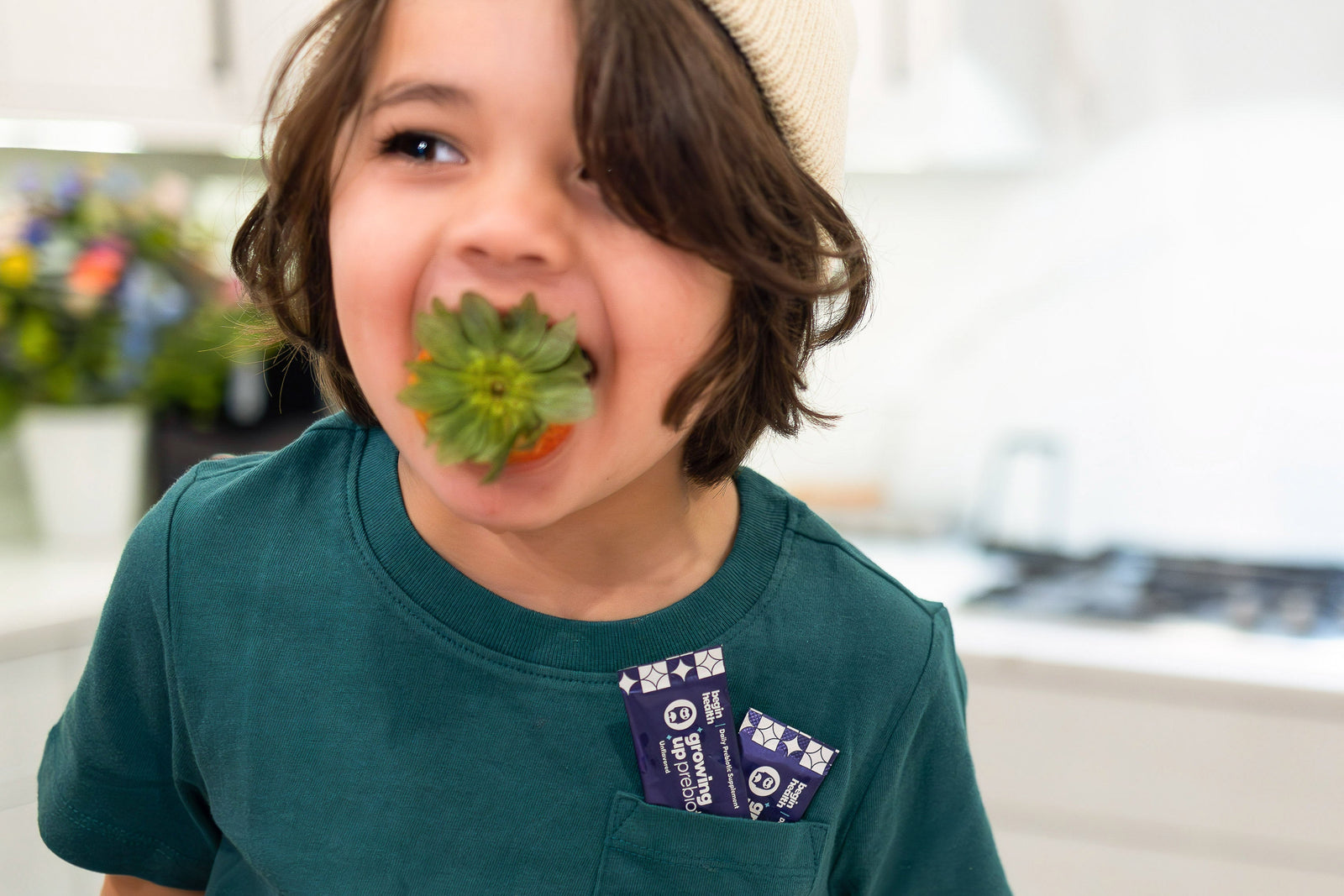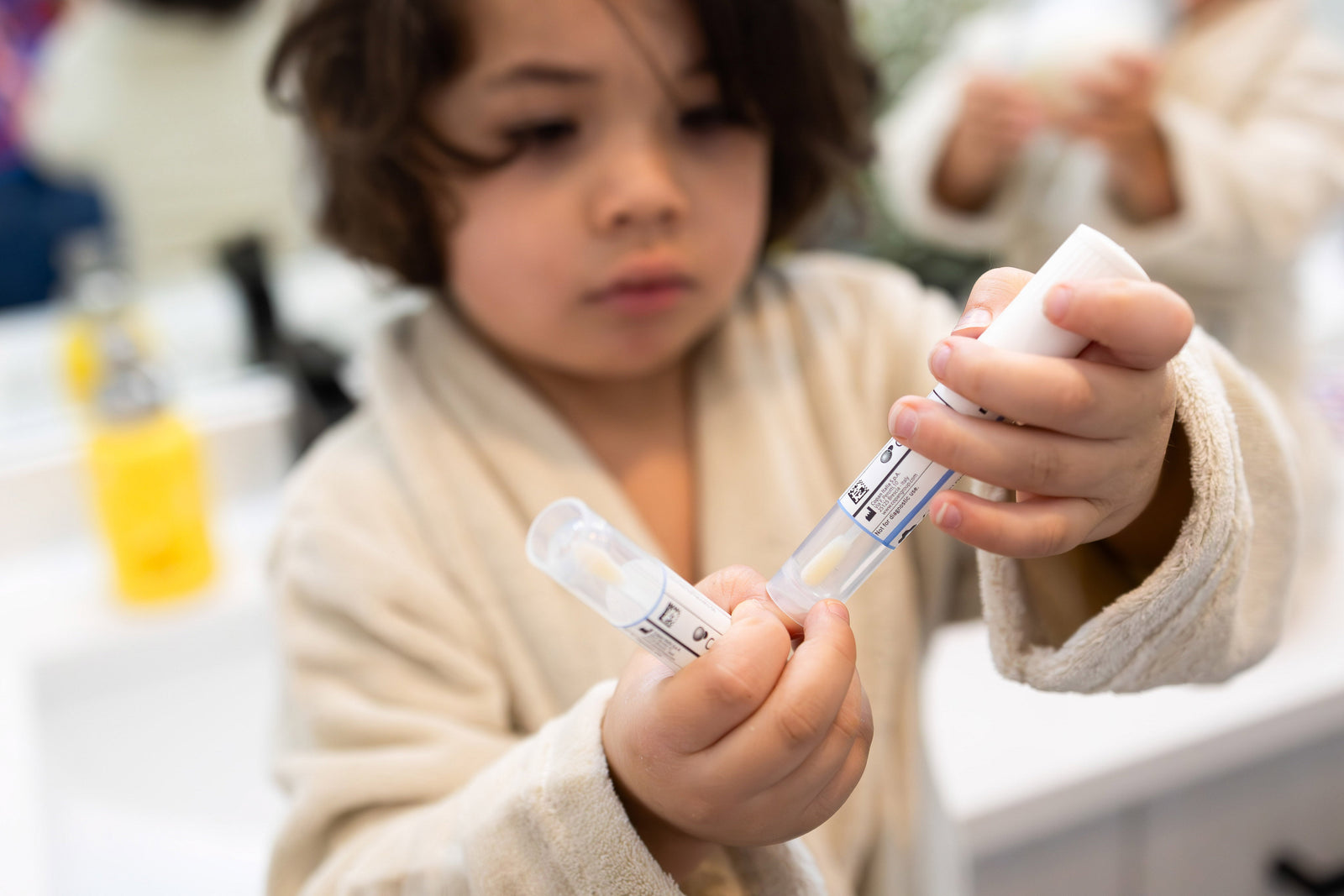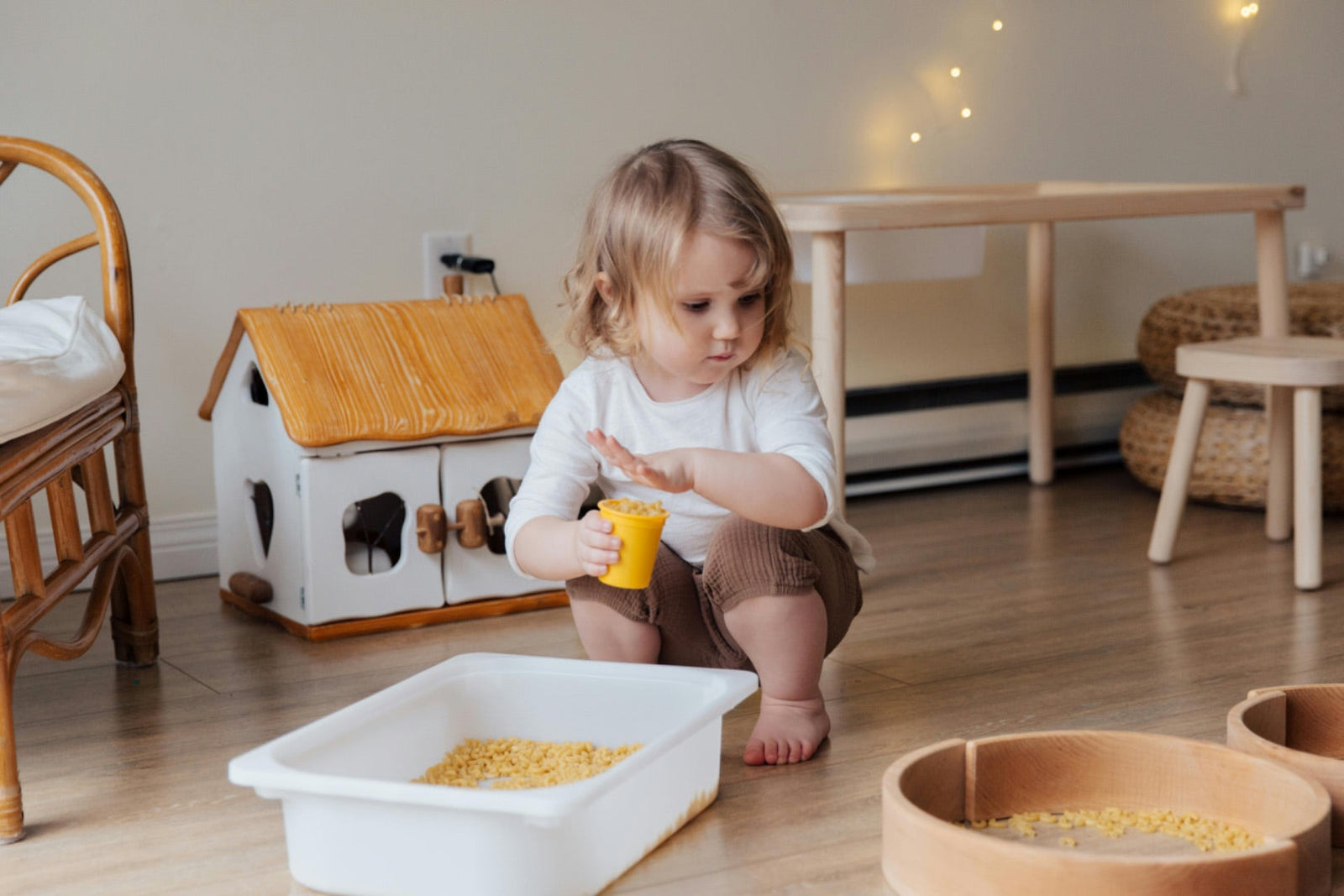Your Cart is Empty
Continue shoppingWhat are Soil-Based Probiotics for Kids?
Expert reviewed by Lauren Mahesri, RDN | Published January 24, 2025
share this article

Soil-based probiotics, or spore-based probiotics, are beneficial bacteria naturally found in soil. They’ve become more popular for their resilience to high temperatures and stomach acid, making them potentially more effective at supporting gut health and the immune system.
In this post we will break down the basics of soil-based probiotics and how to use them safely and effectively for kids.
The Science Behind Soil-Based Probiotics
Although soil-based probiotics are naturally found in soil, their bacteria strains have been isolated into supplements.
You can identify a soil-based probiotic if it includes one of the following strains:
- bacillus subtilis
- bacillus coagulans
- bacillus clausii
- bacillus indicus
- bacillus licheniformis
- enterococcus faecalis
- enterococcus faecium, or clostridium butyricum (1).
The protective spore layer in soil-based probiotics protects them from the harsh conditions of our digestive tract and antibiotics. This allows them to reach all parts of the GI tract more effectively, even for kids undergoing chronic antibiotic treatment (1).
These distinctive features lead to a range of potential health benefits:
Begin Health Expert Tip
Prebiotics can help boost the effectiveness of probiotics. Find out more here about how prebiotics can be the key to help your kid's digestion.
Considerations & Safety
Soil-based probiotics have been well-studied in clinical trials and are generally considered safe, with very few reported side effects.
However, most of the research has been conducted on adults with fully developed digestive systems, so we don’t yet know exactly how these probiotics might affect kids at different ages.
As with any supplement, it’s important to choose products that have been third-party tested to ensure quality and safety. If your kid is critically ill or immunocompromised, it’s best to avoid soil-based probiotics altogether.
If you’re thinking about starting these probiotics for your little one, talk with your pediatrician first. They can help determine if it’s a good fit for your little one.
Instead of taking a soil-based probiotic supplement, your kid can naturally encounter these beneficial bacteria by spending time outdoors. Gardening, playing outside, and eating fresh, homegrown fruits and vegetables are excellent ways to introduce soil-based probiotics into a kid's daily life.
Summary
In summary, soil-based organisms are a type of probiotic naturally found in soil, known for being more resilient than traditional probiotics.
While studies suggest they can support gut health and reduce inflammation with minimal side effects, it’s important to consult your pediatrician before giving them to your kid.

Author
Lauren Mahesri, RDN
Trending

Why Parents Are Choosing Prebiotics Over Stool Softeners for Kids
read now
Oxalates and Kids' Digestion: How High-Oxalate Foods Contribute to Constipation and Gut Discomfort
read now
5 Signs Your Toddler Needs a Poop Test
read now






